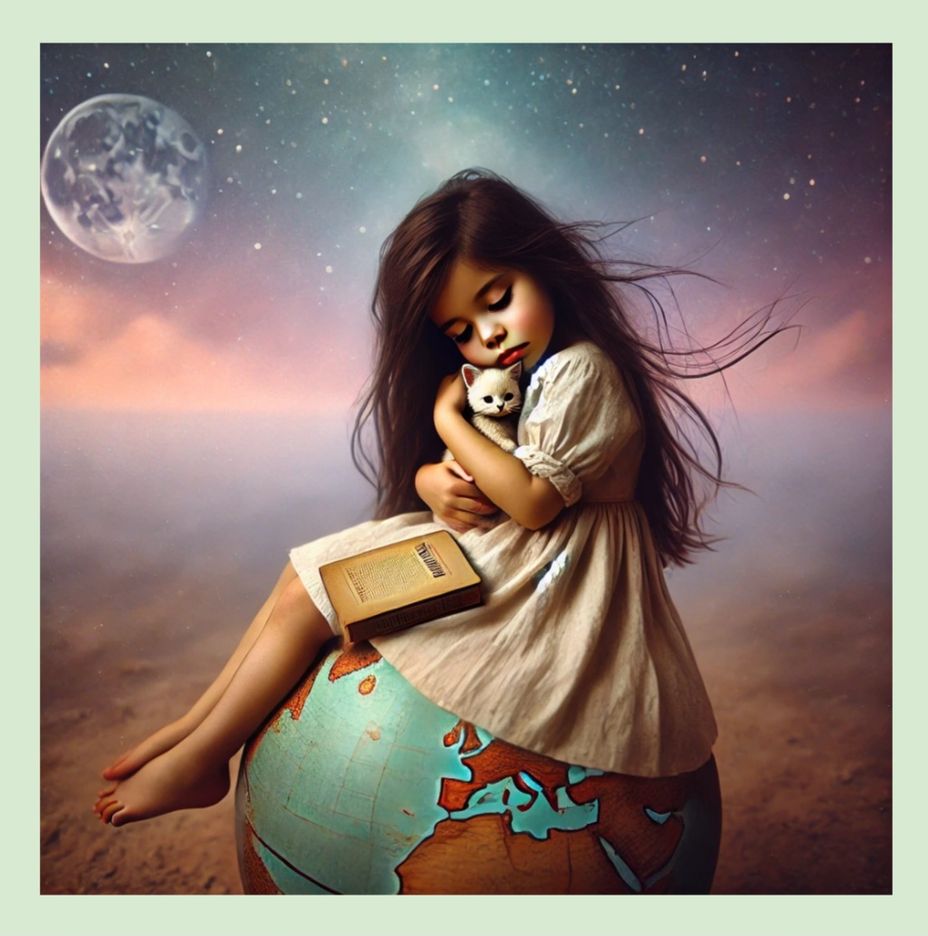How Do You Say "Lost" in Every Language?
I speak four languages fluently: Spanish, Guarani, Portuguese, and English. In college, I even took a semester of French and wandered through Paris, piecing together phrases from memory, testing the limits of my tongue. But fluency is a fickle thing; it’s not just about words, but about being understood. And if that’s the case, have I ever truly been fluent in anything?
I was born in Paraguay, a country where Guarani only became an official language decades after I was already speaking it in secret. My mother forbade it at home. She wanted my Spanish to be perfect, untainted. To her, Guarani was a limitation. To me, it was a door—a door to belonging, to laughter, to a world just beyond my reach.
So I learned it quietly. A tiny act of rebellion. I found an old Guarani dictionary somewhere and poured over it like it held spells that could make me visible. I thought if I spoke their language, maybe they’d let me in.
But language does not guarantee belonging.
I learned Guarani because I wanted friends.
And still, I was alone.
I was the strange one: too much, too intense, too loud, too quiet, too wrong. I didn’t know why. There were no words for it then. Only rejection. Years later, I would discover that my mind works differently, that my thoughts race, that I feel too deeply, that I live in patterns others can’t see. Back then, I just knew I didn’t fit.
So I turned inward. If no one would talk to me, I would listen.
That’s how I learned Portuguese, not through friendship or school, but through solitude. My bedroom became my sanctuary, my television my only companion. Living near the Brazilian border meant six channels played freely, their voices filling the silence where friendship should have been. I absorbed the language the way I had with Guarani, not from rebellion this time, but from loneliness.
Guarani was the language I learned because I longed for connection.
Portuguese was the one I learned because I had none.
When I moved to the United States, English became my lifeline. I learned it the way someone learns to swim after being thrown into the ocean, desperately, without rhythm, without time to think. And still, no matter how many languages I collected, I kept finding myself misunderstood.
Fluency, I learned, is not the same as connection.
I could translate, conjugate, perfect every tense. But the rhythm of human interaction, the invisible rules of friendship, the easy art of belonging, remained foreign to me. So I searched for connection elsewhere, in love. I convinced myself that romance could fill the spaces friendship never did. But even there, I faltered. I was present, but distant. I loved, but I never stayed. The pattern followed me from cities to homes to jobs. I was always moving. Always searching.
And here lies the greatest irony of all: I speak multiple languages, yet I still struggle to communicate.
Not because I lack the words. I have too many words.
But I never learned the ones that make people stay.
The ones that make them understand me.
The ones that turn speech into belonging.
How do you say lost in every language?
Because that’s the word I’ve always known best.
#MyStoryMatters #sharingmytruth #breakingthesilence #unspokenwords #writingtoheal #neurodivergentvoices #adhdawareness #AutismAcceptance #invisiblestruggles #mentalhealthmatters #EndTheStigma #lostintranslation #languageandloneliness #youarenotalone #healingthroughwords #Findingmyvoice #fromsilencetostrength #writingthroughpain #multilingualmisfit #fluentbutmisunderstood #thepowerofwords

